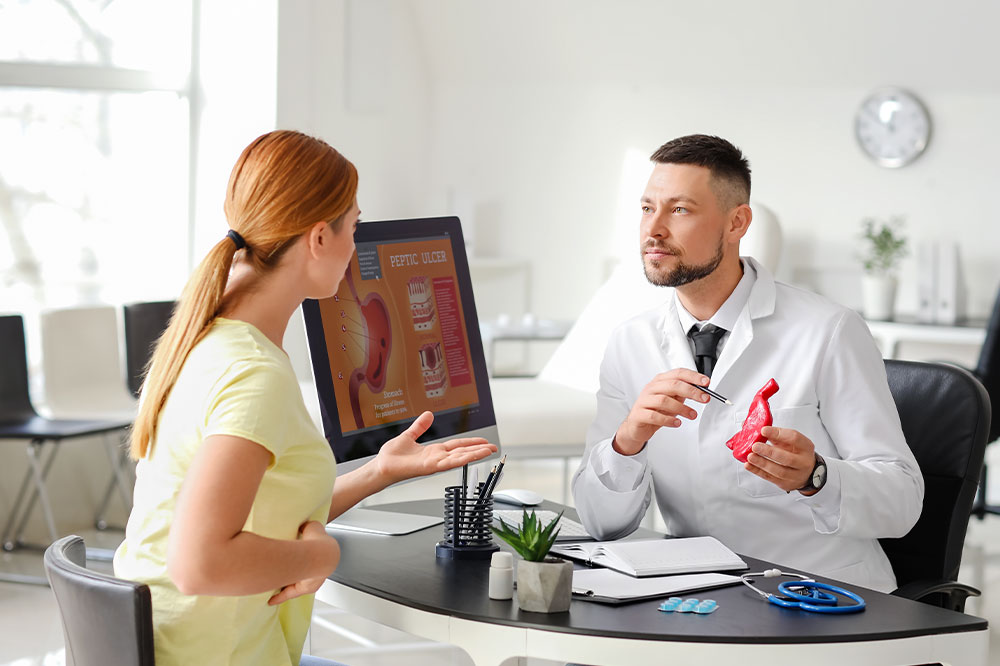
5 uncomfortable questions to ask a gastroenterologist
Nobody likes talking openly about bodily functions, especially when it comes to digestion and excretion. This is why, most people struggle to discuss issues like constipation and excessive flatulence, even with close relatives. Fortunately, a gastroenterologist’s cabin is a safe space where the healthcare expert can resolve all potentially embarrassing queries without a hint of judgment. Here are some of the most so-called embarrassing questions one can freely ask their gastroenterologist without holding back.
Do I have constipation?
Constipation is a very specific health issue involving hard and lumpy stools that are incredibly challenging to eject from the body. Also, someone with constipation will constantly feel that they have not evacuated their feces completely, which leads to a perpetual urge to visit the restroom for a quick pooping session.
A gastroenterologist can differentiate between this and other common conditions like gas, bloating, cramps, and others in which people have less-than-smooth bowel movements or do not feel like defecating even after multiple days without doing so.
Do I need a colonoscopy?
Constipation is a common issue across the country. People with issues such as chronic idiopathic constipation often believe that colonoscopy is the only solution to resolve it.
An experienced gastroenterologist decides whether someone needs a colonoscopy based on 4 factors:
- Whether a given patient has alarming symptoms such as bleeding, unexplained muscle loss, or abdomen pain
- Whether the patient has a history of colon polyps or a family history of colon cancer
- Whether the patient in question is due for a colonoscopy as a follow-up for past treatments
- Whether the patient shows apparent changes in their bowel habits for a few weeks at least
Why do I fart a lot?
Flatulence is always a sensitive and hyper-embarrassing topic for people, especially the ones who have excessive gas. People who pass gas more than usual do not actually have more gas, they are just more aware of their flatulence than most other people who break wind occasionally without even knowing about it.
Gas production is enhanced by a nutrient known as raffinose, found in foods such as broccoli and cabbage. Alternatively, foods such as onions and avocados can make one gassy too.
However, most gastroenterologists state that breaking a lot of wind is not a sign of a major illness. Instead, it is just reflective of one’s eating habits.
Is my poop normal?
What one eats not only influences their gas levels but also the color of their feces. For instance, the intake of meals rich in green vegetables and leafy items can lead to one’s feces turning a shade of green. Other than that, feces that are any other color but brown indicates that an individual has some digestive problem, meaning that a visit to the gastroenterologist is necessary.
Fortunately, healthcare professionals know when to calm a patient’s nerves and when to warn them about specific health conditions and potential therapy to address them.
Will I be awake during the colonoscopy?
Generally, doctors prefer to administer general anesthesia to make a colonoscopy as seamless for patients as possible. This means that patients are generally out cold when they undergo the procedure. The main target of a surgeon during this operation is to offer a pain-free experience to the person undergoing it. Therefore, they focus on the patient’s airways and vital signs during the operation.
When visiting a gastroenterologist, one should also discuss digestion-related concerns like acid reflux. This could be a sign of a condition called gastroesophageal reflux disease (GERD), which develops when the sphincter muscle at the lower end of the esophagus relaxes, making stomach acid back up into the esophagus. The condition causes heartburn, chest pain, and breathing issues. The doctor can help one prevent and manage GERD by exercising, eating healthy foods, and taking prescriptions.


